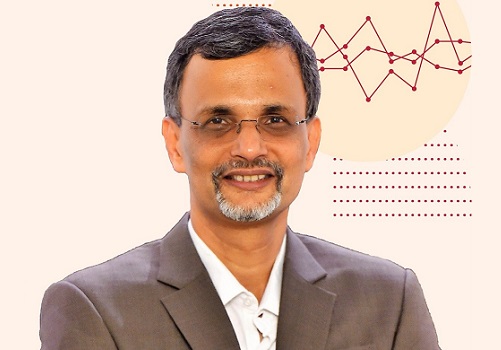GST reforms to help offset some of adverse impacts of steep tariffs imposed by US on Indian shipment: CEA V Anantha Nageswaran

Chief Economic Adviser (CEA) V Anantha Nageswaran has said that the goods and services tax (GST) reforms will help offset some of the adverse impacts of steep tariffs of 50 per cent imposed by the US on Indian shipment and the net impact of this on the Gross Domestic Product (GDP) growth would be 0.2-0.3 per cent in the current financial year (FY26). On the positive side, he said, the GST reforms will play a very good offsetting role by substituting domestic demand for whatever export demand that may not materialise from the United States. He said GST reforms will help alleviate the second and third round effects by creating domestic demand and therefore removing the uncertainty that will come in the way of capital formation.
CEA exuded confidence that the tariff situation will turn out to be transient and short-lived, rather than long lived. He said ‘but in the event that it lasts longer than we want it to, especially the penal tariff of 25 per cent, then the second and third round effects will become more pronounced, which is the uncertainty with respect to investments, capital formation, overall sentiment in the economy’. However, he said GST reform would not only boost domestic consumption but more importantly it provides an antidote to the second and third rounds of tariff impact.
On structural reforms in the domestic economy, Nageswaran said while many initiatives have been started by the Centre to boost the agriculture sector, these initiatives are state-level subjects that should be supplemented by them. He emphasised that the agriculture sector still has room to contribute at least 0.5-0.7 per cent more to India's GDP growth and that is a function of giving farmers the right to sell to whosoever, whatsoever, wherever, and whenever. He said 'That is the kind of freedom that farmers need much more than agriculture subsidies. Farmers also need some element of insurance, given their business is inherently prone to ravages of nature and uncertainties'. He added that empowering farmers and not imposing restrictions in their ability to tap market signals from within India or overseas, these would unleash productivity in agriculture and add to GDP growth.




















